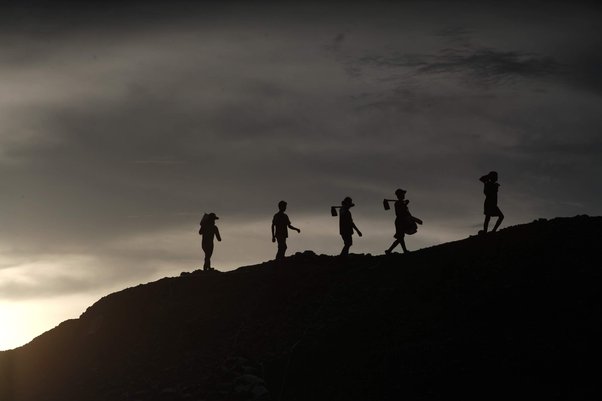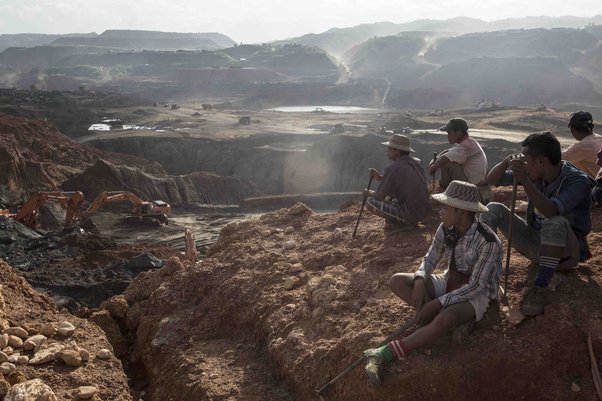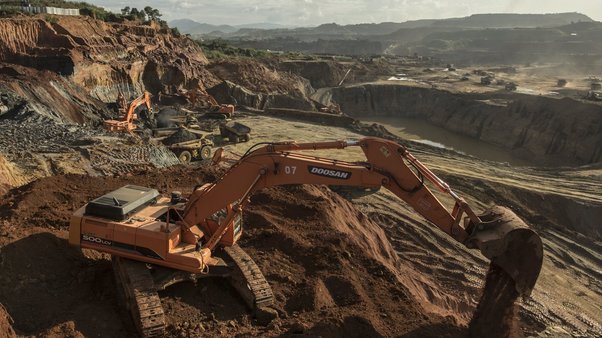Stop the EU supporting a Deadly Trade
In June 2016, after several years of negotiations, the European Union (EU) reached a political understanding on a new regulation which is intended to break the links between the minerals trade, conflict and human rights abuses. This is a welcome step in the right direction from the EU, which has been lagging behind the US and some African states that already have similar laws in place.
Global Witness, along with other civil society partners, has been campaigning for a strong and binding law for many years . It now looks like many of the EU’s companies will, for the first time, be required to demonstrate that they have sourced their minerals responsibly and transparently. This is an important step in the right direction, but it is only the first step.
The extraction and trade of minerals has been linked to conflict and human rights abuses around the world, from the hills and rivers of Colombia and Mexico, to the mines of the Central African Republic (CAR) and the Democratic Republic of Congo (DRC). The EU—as the world’s largest single market—is a major player in the global trade in minerals and as such has a real opportunity and responsibility to be a force for good in this industry.
The EU has now sent a strong signal to many companies, who will soon be required to check their supply chains to make sure they have not funded conflict or human rights abuses. The onus is on these companies to show that they committed to sourcing more transparently and responsibly and not to dragging their feet and finding loopholes.
Yet the EU could, and should, have gone further. Unfortunately the EU regulation only covers a handful of minerals (tin, tantalum, tungsten, and gold), meaning other valuable resources like diamonds and other precious stones won’t be checked in the same way. And the new law only requires those companies importing raw minerals into the EU to carry out checks on their supply chains to see if they are funding armed groups or human rights abuses, meaning companies that bring the very same minerals into the EU as part of components and products, like mobile phones or cars, are let entirely off the hook. The EU still has some way to go prove it is serious about making sure all EU companies are sourcing the resources we all rely on more responsibly.
This means the EU has also missed an opportunity to make full use of the EU’s commercial leverage to drive positive change outside of the EU. The EU could have made it clear that the EU is a market for products that have been manufactured responsibly, not an open invitation to bring in products under the mantra of ‘we won’t ask if you don’t tell’. This stands in contrast to what the European Parliament voted for in 2015, which was a strong and binding conflict minerals law which covered all companies bringing minerals into the EU. Their vote also echoed calls from almost 150 religious leaders, global investors, small businesses and business leaders. More than 150 international campaigning organisations also joined the call for change, as well as hundreds of thousands of European citizens. Dr. Denis Mukwege, the winner of the European Union’s most distinguished human rights award (the Sakharov Prize) also called for a strong mandatory law when he accepted his award in 2015.
A commitment to responsible sourcing must be made mandatory for all businesses that could potentially bring conflict minerals into Europe. If not, the legislation now under discussion risks undermining global attempts to clean up the trade.
What comes next
There is no question that all companies have a responsibility to play their part in making sure their supply chains are transparent, sustainable, and responsible. Ultimately, the EU has decided to trust that the majority of companies will choose to act responsibly of their own accord, at a time when the ability of business to regulate itself is coming under question. It is now up to companies and policy makers to demonstrate that this trust is well placed.
The EU must act decisively to clarify the mixed messages it is sending to companies not covered by the law and make it clear to companies left out that their engagement with the responsible sourcing movement is still both expected and desired. If these companies do not respond and the law fails to change both the way business is done and the lives of those affected by opaque and irresponsible parts of the minerals trade then further action must be taken. The EU has promised that they would take further legislative action if this was the case and we will be working alongside our partners to ensure that this is the case.


